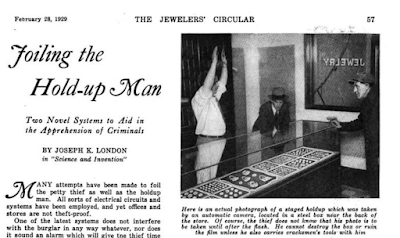In 1996, I was floundering with a children’s picture book manuscript on the life of the medieval mathematician Leonardo of Pisa (~1170-1250), better known as Fibonacci.
Leonardo helped convert Europe from the Roman numerals I-II-III to the Hindu-Arabic numerals 1-2-3, and introduced the west to the world’s most important nonentity: zero. Without it, we’d have no concept of place value. He is best known for a word problem about multiplying rabbits, and the number pattern derived from it called the Fibonacci Sequence.
Either I wrote about Fibonacci or I wrote about the Sequence. I had trouble unifying the two because it didn’t happen that way.
Second, facts on Leonardo’s life are sparse: He grew up in Pisa, sailed to Algeria to keep his merchant father’s accounts, and later traveled the then-known world studying mathematics. A few of his math tomes have survived, but they tell us little of his personal life. To write a picture book about him, one ought to know what made him tick.
What, I wondered, drives a person to chase numbers across the world?
Herta Taussig Freitag, a professor emeritus of mathematics, took the call in Virginia. She had a thick German accent, and proved to be a delightful, friendly, patient person who was tickled to be speaking with a (then) editor of a math magazine for children.
She had wanted to become a teacher of mathematics since age 12. (As a girl in her native Austria, she had once written in her diary, “I don’t want just to be a teacher of mathematics. I want to be a good teacher of mathematics.”)
We had a long chat, and she assured me that I was grappling with a genuine mystery. No one was satisfied with the translation of Fibonacci’s nickname. It could mean “wanderer,” “daydreamer,” or “absent-minded.” The words seemed in line with modern stereotypes of academics. In modern Italian, a bighellone is a loafer, a slouch, loiterer, dawdler, or gadabout. You get the idea.
When we concluded our call, I promised to send her copies of our magazine. Days after the magazine arrived at her home, a note from the professor arrived in my mail, penned in exquisite calligraphy. “As I have said over the phone,” it read in part, “I feel like praising you and thanking you for doing such valuable service to our Goddess Mathesis!”
The note cheered me. Mathesis is a Greek word meaning knowledge or science, but Freitag and her colleagues had elevated that word to the status of a feminine divine creature said to inspire math scholars.
The math muse inspired me now: What if Fibonacci knew the secret of his famous numbers all along? What if this book was in fact his sly manifesto written only for children?
I’ve never told anyone the secret of my numbers, he could say, but now I’ve told you.
Having Fibonacci speak directly to the reader could make the book playful. Kids—not to mention a certain octogenarian academic—might like it. The manuscript came together nicely, and a year or so later, Holt offered to publish it. I called it Blockhead. An illustrator got to work on the sketches. I phoned the professor to tell her the news. It had been a while since our first talk, and her fragile voice spoke volumes. I rang off, apologizing for disturbing her. She and I never spoke again. She died in 2000 at the age of 91.
Soon after, the book became a problem project, dragging on for years with little progress. Finally, the illustrator quit, forcing us to start from scratch. John O’Brien, a marvelous illustrator, musician, Jersey boy, and a longtime New Yorker cartoonist, took the job. All told, the book took fourteen years to reach bookstores. I was frustrated and angry, but now consider myself fortunate. I had time to polish the prose, understand my hero, and learn about the woman who brought Mathesis to my doorstep.
Professor Freitag had earned a degree in mathematics in Austria, but fled her homeland after Hitler’s invasion in 1938. For six years, she put her dream of teaching on hold while working as a domestic in England, angling for a visa to the USA. She finally came by freighter. She earned her PhD at Columbia University at age 45. She built the math department at Hollins University in Roanoke, and for decades inspired young women. She published papers well into her last decade, gave a “last lecture” for 20 years, and never missed a meeting of the Fibonacci Association, which is devoted to the analysis of those famous numbers. Just how much do these people love the Fibonacci Sequence? Well, let’s just say that their quarterly magazine chose to celebrate not Freitag’s 90th birthday, but her 89th, since 89 is a Fibonacci number.
The color photo of her (top right) of this page was taken in Lucca, Italy, during a conference at Leonardo’s hometown, Pisa.
How can I complain about a book’s long genesis? Imagine leaving your home forever, and putting your dream career on hold for six years while you worked as a maid, restaurant server, or governess? How many of us would have given up? Yet she clung to her passion.
With time I came to understand him through her. A young boy boards a medieval ship and sets sail on a journey to a faraway land. A young woman steps on a freighter bound for New York with only $10 in her purse. I picture them both and know they are plying the seas toward something only they can hear: the ancient call of Mathesis.
I am older now and tend to view Mathesis in the original Greek sense—knowledge, science, learning, mental discipline—and I cling stubbornly to the hope that she speaks to us all. With luck, she strikes young and old alike. Hand a book to a child and you never know what will enchant them. With her voice in their ears, some kids chase math, others art, still others music, rocks, dance, nuclear physics, whatever.
































